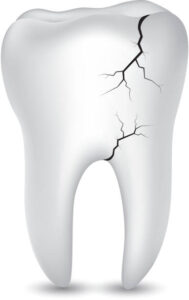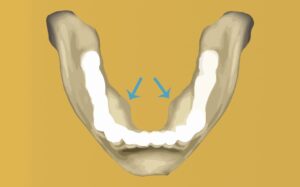Fluoride, found naturally in food and water, plays a very important role in keeping your dental system healthy through the remineralization of enamel. Teeth enamel loses minerals like fluoride, calcium, and phosphate, and fluoride helps in maintaining the balance through remineralization. If the balance gets disturbed, you might need supplementary fluoride, available as a common ingredient in modern toothpaste. Fluoride makes your teeth stronger to resist acid attacks from plaques, bacteria, and sugar in the oral cavity. Fluoride is necessary to prevent dental decay, but which fluoride compound you should opt for you when you have alternatives like Sodium fluoride (NaF), Sodium monofluorophosphate (MFP), and most hyped Stannous fluoride (SnF2).
Stannous Fluoride (SnF2), or Tn(II) Fluoride, is an American Dental Association (ADA) recognized compound for gingivitis, dental infections, cavities, and preventive toothpaste. Sodium Fluoride is also recognized for the same effect, but studies suggest that Stannous Fluoride is more effective in promoting enamel mineralization, controlling gingival inflammation, and changing the microbial composition of teeth biofilm. So, when you are buying your next FDA-approved fluoride toothpaste you should look for the ADA Seal of Acceptance for Stannous Fluoride.
How Stannous Fluoride Works?
When you use a toothpaste containing stannous fluoride, it forms a stable acid-resistant layer on the teeth’ surface. The stannous fluoride converts the calcium mineral apatite into fluorapatite. This compound interacts with salivary proteins like mucins and modifies the absorbent layer, thus making the anti-erosive layer more resistant to enamel erosive agents. The erosion-inhibiting effect of stannous fluoride depends on the absence or presence of de-mineralized organic dentin matrix. Better resistance to enamel eroding agents boosts enamel remineralization, controls inflammation of gingival tissue, and makes teeth stronger to prevent tooth cavities and decay. Unlike sodium fluoride, stannous fluoride makes your dental surface more resistant to bacterial acids. Studies suggest that this compound is effective in killing harmful bacteria found in oral space. The formation of a layer over open tiny channels of dentin by SnF2 helps in reducing dental sensitivity.
Benefits of Stannous Fluoride Toothpaste and Mouthwash
Mineral erosion from the teeth surface is natural, but if de-mineralization is faster than re-mineralization you might be at the risk of losing natural teeth. Brushing twice a day using stannous fluoride toothpaste can help you maintain the delicate mineral balance. Other fluoride compounds are also effective in making your dental system healthier, but stannous fluoride brings to you several other benefits, like:
- Making teeth more resistant to acid attack by remineralizing enamel’s calcium hydroxyapatite structure and forming calcium fluorapatite.
- It can reverse early decay of tooth
- Protecting teeth against cavities
- Reducing plaque deposition and tartar formation
- Make enamel stronger
- Controlling bacteria outgrowth and gingivitis development
- Controlling gums bleeding
- Making mouth more refreshing and odor-free
- Reducing the sensitivity of teeth
- Maintain natural whiteness of teeth
- Avoiding dry mouth-related complications
Disadvantages of Stannous Fluoride Toothpaste
The list of benefits the stannous fluoride toothpaste brings far outweighs the potential disadvantages. Besides regular use as toothpaste, dentists use stannous fluoride gel or foam during the regular dental cleaning procedure. Dentists recommend once or twice a day use of stannous fluoride toothpaste, but you should be aware of possible drawbacks to enjoy maximum benefits without side effects. Some of the disadvantages of stannous fluoride toothpaste are:
- Some studies conducted on a limited group found possible relation between teeth staining and stannous fluoride
- It could taste unpleasant and leave a granular feeling. However, new formulations have overcome these challenges.
- It is not carcinogenic, but make sure your kids aren’t swallowing the toothpaste
Difference Between Stannous Fluoride and Sodium Fluoride Toothpastes
Fluoride toothpaste in general and stannous fluoride toothpaste, in particular, simplifies your oral hygiene goal. But if you are confused about whether you should go for toothpaste containing sodium or stannous fluoride, then the overwhelming majority of research suggests you should go for stannous fluoride. It not only ensures better oral hygiene by keeping your oral space bacteria-free but protects your teeth from cavities and gingivitis.
Sodium fluoride is also great in strengthening your enamel, but when it comes to prevention or reversing tooth decay and gingivitis stannous fluoride toothpaste outperforms sodium fluoride toothpaste. On top of that, stannous fluoride toothpaste keeps your breath fresh and the smile bright as it is more effective in controlling bacterial growth in oral space.
Unlike the sodium fluoride version, the stannous fluoride toothpaste offers you all-around performance.
Should I Use A Stannous Fluoride Mouth Rinse?
A healthy oral care regimen of brushing twice, flossing at least once, and mouth rising can keep you away from most of the common dental and oral ailments. The only prerequisite is gentle and effective brushing, flossing, and rinsing with high-quality oral care products. If you want to keep oral space clean, make the enamel stronger to resist acid attack, and breathe fresh you should rinse your mouth with stannous fluoride mouthwash. Ideally, you should rinse every time after a meal, but rinsing in the morning and after dinner will help you prevent cavities more effectively. If you are already using stannous fluoride toothpaste, then you might not require stannous fluoride mouthwash.
Should I Stop Drinking Bottled Water?
The human body needs fluoride in optimum quantity for a healthy dental system. Although not considered essential to sustain life, the American Dental Association (ADA) recommends drinking fluoridated water to prevent early tooth decay caused by acid attacks. Since most bottled waters do not contain recommended fluoride levels of 0-7 to 1.2 parts per million, you might be missing the benefits of fluorinated water. Studies suggest that people drinking fluoridated water from public water supply report fewer tooth decay problems. So, if you are drinking bottled water, it is better to check the label and buy fluorinated bottled water only to keep your dental system healthy.
When to See a Doctor?
It is a fact that despite following a healthy oral care regimen strictly, regular brushing and flossing aren’t enough to prevent plaques and tartars. Healthy oral care can help you delay the tooth decay caused by plaques, but cannot prevent it. The best is to visit your dentist at least twice a year for routine checkups and cleanings. Besides, if you notice any irregularity in oral space you should get in touch with your dentist for immediate attention. Some common dental health challenges are:
- Teeth discoloration
- Gum inflammation and bleeding
- Bad breath
- Teeth sensitivity
- Plaque and tartar deposition
- Cavities
Are There Any Potential Side Effects From Fluoride?
Fluoride is considered a semi-essential nutrient, necessary for stronger teeth. Although stannous fluoride available in oral care products is safe for use, experts highlight possible side effects if consumed in large doses for a long period. The permissible limit of fluoride in drinking water in the U.S. is 0.7 ppm, so it could be considered safe for common use. If you have dental conditions and bone-related issues, you should better ask your doctor before you start using the stannous fluoride. Since toothpaste contains a significantly higher concentration of stannous fluoride, it could cause dental fluorosis, especially among kids who swallow toothpaste while brushing. Excessively high doses of fluoride could alter the bone structure and cause classification of ligament resulting in joint pain and stiffness. Although it is very rare, one should be very careful in using fluoride toothpaste to avoid possible side effects.
Takeaway
Strong and healthy teeth are necessary for a healthy life, and the best way to keep the dental system healthy is to brush teeth gently using stannous fluoride toothpaste. The effective re-mineralization and bacterial control properties of stannous fluoride toothpaste make it essential for healthy oral space. Strong enamel with healthy gums will boost your confidence to smile freely. Most of the side effects are related to wrong use, so use it as per the recommendation of your dentist. The benefits of stannous fluoride toothpaste far outweigh potential risks, so buy an ADA-certified stannous fluoride toothpaste available over-the-counter and use it regularly to keep your teeth and gums healthy.
SOURCES:
- Paraskevas, S., and G. A. Van der Weijden(2006). “A review of the effects of stannous fluoride on gingivitis.”
https://onlinelibrary.wiley.com/doi/abs/10.1111/j.1600-051X.2005.00860.x - Thrash, W. J., M. W. Dodds, and D. L. Jones (1954). “The effect of stannous fluoride on dentinal hypersensitivity.”
https://europepmc.org/article/med/8021036 - Fiorillo, Luca, et al (2020). “Stannous fluoride effects on enamel: A systematic review.”
https://www.mdpi.com/812700 - Cheng, Xingqun, et al(2017). “Comparative effect of a stannous fluoride toothpaste and a sodium fluoride toothpaste on a multispecies biofilm.”
https://www.sciencedirect.com/science/article/pii/S0003996916303193 - Madléna, M., et al(2004). “Effect of amine fluoride/stannous fluoride toothpaste and mouthrinse on dental plaque accumulation and gingival health.”
https://onlinelibrary.wiley.com/doi/abs/10.1111/j.1601-0825.2004.01025.x


